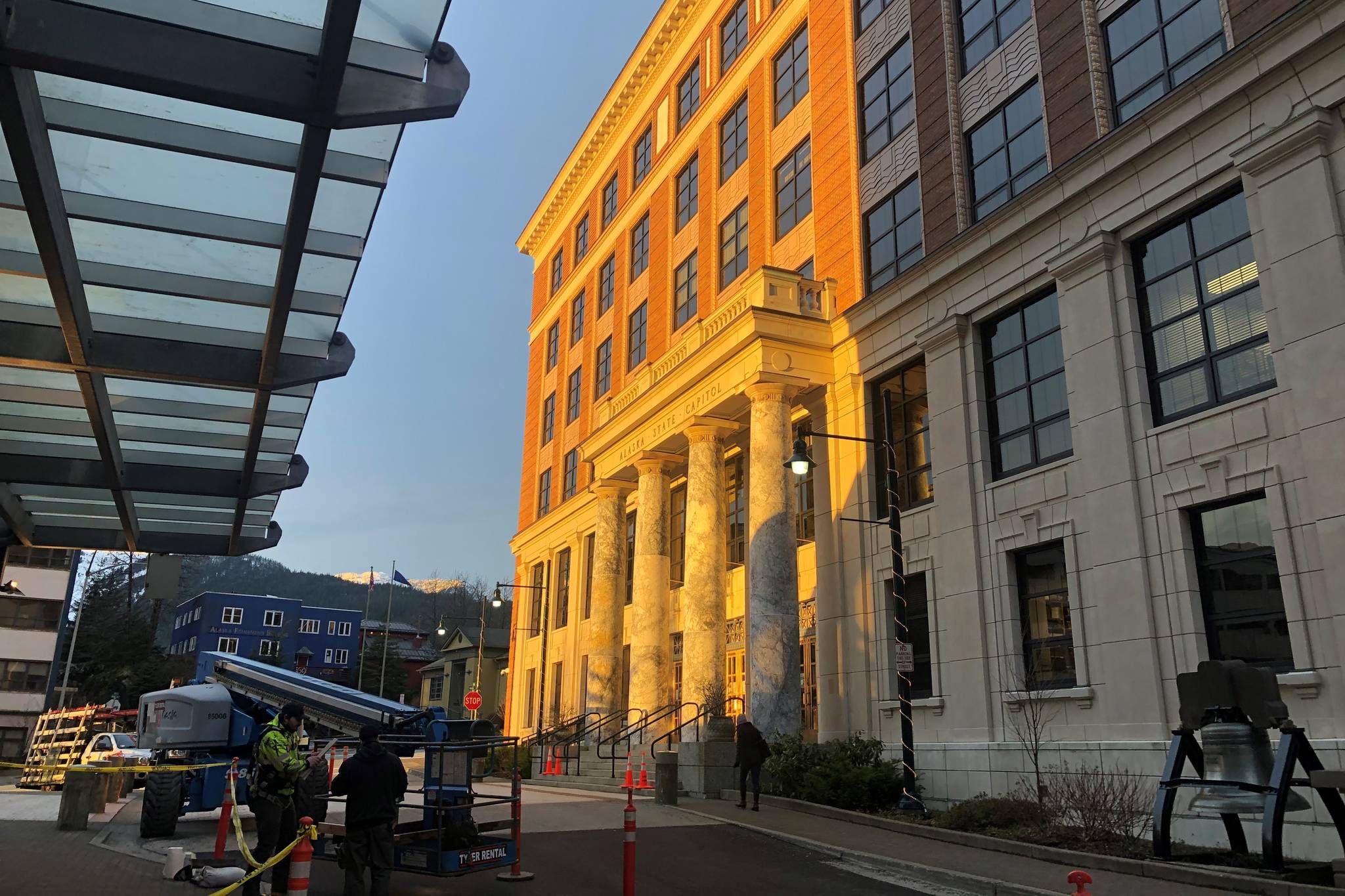In his first State of the State speech two years ago, Gov. Mike Dunleavy proposed three constitutional amendments as “the foundation of a permanent fiscal plan.” He’s pushing them again. But this time around there will be a little extra headwind rising from the first branch of our government. And that pretty much assures his simplistic cure-all for the state’s chronic budget deficit will run into a brick wall. Again.
The first of the amendments was his version of protecting the PFD. It includes making the annual payout not subject to legislative appropriations. Neither they nor the governor would be able to reduce the amount owed to Alaskans. And voters must approve any changes to the statutory formula that sets the amount.
The second would require voters approve any tax increases.
The third one would put an upper limit on state spending and transfer “unexpended, unobligated and unappropriated” year end funds to the permanent fund and a savings reserve.
In the first half century of Alaska’s statehood, our constitution was amended 28 times. It may be one more than the number of amendments to the U.S. Constitution, but don’t let that comparison fool you. Getting one adopted isn’t easy. Let alone three.
The second step in the process is the easy part. A majority of voters needs to bless them. Before that, two-thirds of the both the Senate and the House of Representatives must agree it should be put on the ballot. And that’s not at all likely given that the two parties are almost equally represented in the House.
The situation was only slightly better in 2019. But Dunleavy’s optimism that the Legislature would endorse all three could be forgiven. Like all governors who handily won their first election, he took office believing voters gave him a strong mandate to make good on his campaign promises.
What he failed to notice was that the Legislature wouldn’t be as friendly to his agenda.
Republicans had solid control of the Senate. But they held one less seat than during the prior session. And that was the group he walked away from because the majority in his own party disagreed with him.
On the House side, Republicans picked up two seats, but still only had a four-seat advantage. And that was negated entirely when a bipartisan coalition formed to take control and a Democrat became Speaker.
Last year’s election did nothing to boost Dunleavy’s chances of getting the amendments through the Legislature. In the Senate, where it’ll take 14 votes to advance them, the 13-7 split favoring Republicans is unchanged. And even though former Senate President Cathy Giessel, R-Anchorage, lost her bid for reelection, she wasn’t the only Republican who opposed his fiscal solutions.
In the House, Republicans are starting this session with only a 21-19 advantage. Even if they all support the amendments, Dunleavy will still need at least five Democratic or independent representatives to join them. That’s simply not going to happen.
So why is he returning them to the centerpiece of his agenda? Because like it was when he quit the Senate majority in 2017, he’s convinced he alone has the answers. And he thinks the voters who put him in office agree.
“Part of having a great constitution is the ability for you — the people — to amend it when issues arise,” he said two years ago. He claimed the amendments “will protect you the people.”
That we need to be protected from our own government is a populist reference to the commonly abused line from President Ronald Regan’s first inaugural address — “government is the problem.”
If government is the sole source of our troubles, then it follows that the solution should be simple, which is the word he used to describe the most complicated of the three amendments. It also sets up the Legislature to be the villains. If they don’t support these simple amendments, then they must be in favor of big government and wasteful spending.
In this case through, the problem with our government is the governor. It would be smarter for Dunleavy to work with the Legislature Alaskans elected, not the one he wishes we elected. Only then will he understand why not enough of them take his agenda seriously.
Rich Moniak is a Juneau resident and retired civil engineer with more than 25 years of experience working in the public sector.
• Rich Moniak is a Juneau resident and retired civil engineer with more than 25 years of experience working in the public sector. Columns, My Turns and Letters to the Editor represent the view of the author, not the view of the Juneau Empire. Have something to say? Here’s how to submit a My Turn or letter.
